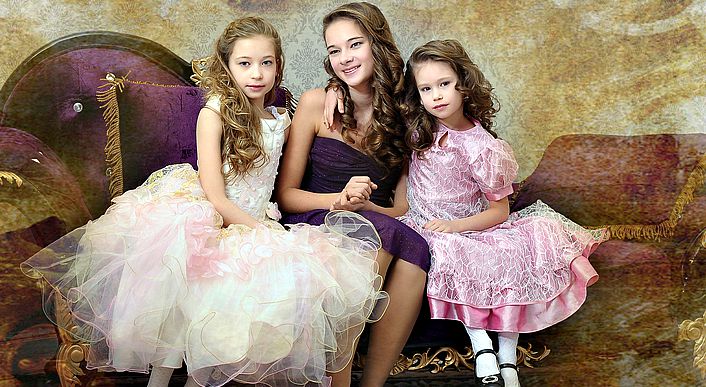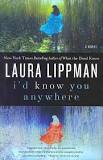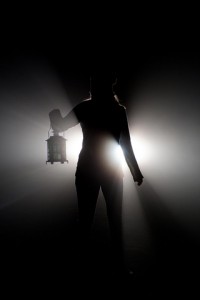What I’m Reading:
 “The Weird Sisters” by Eleanor Brown, Sibling Position, Part 1 of 2
“The Weird Sisters” by Eleanor Brown, Sibling Position, Part 1 of 2
Before launching into this article, you might want to read:
1. What Does Your Sibling Position Have to Do with Your Relationship? Walter Toman’s Birth Order Tendencies
2. The Myth that More Attention is Better—Coming.
3. Me? Host Thanksgiving? You’ve Got to Be Crazy!
4. But What About Only Children and Sibling Position?—Coming.
5. From the Bowen Center on Sibling Position

“The Weird Sisters” by Eleanor Brown
Ms. Brown does a lovely job with the novel and I’d certainly consider The Weird Sisters good reading, but for this purpose excerpts will be presented not in chronological or ‘reviewer’ order but in terms of relevance to sibling position.
Remember, a number of factors go in to determining functioning. Sibling position is only one factor. Therefore, when you think, “Hey! I’m not like that!” try to not let those thoughts throw you off of the story.
The Weird Sisters follows the lives of three sisters during a year that changes their lives. Or–better stated, a year which presents the opportunity for each to change. Change is hard. Some people will change when they get a ‘calling.’ The rest of us only change when we feel the licks of the fire.
The event that draws them back home–their mother’s cancer and cancer treatment—serves as the stage on which each young woman examines her life so far and re-considers where she wants her life to go. While the mother’s ill health is the obvious call to return, each daughter admits that behind her return home is an awareness of her failure to truly ‘launch’ from the family.
Each is aware that her choices and behavior in life so far has been a repeated playing out of the sibling-functioning position learned in the family. Now in their twenties and early thirties, the sisters are tired of being ‘stuck’ and are back home to give adulthood another shot.
Ms. Brown does a neat job of describing the very different way each girl has approached relationships with men: “Cordy [the youngest, ready to take what’s left] had always been compliant. While Rose searched [the eldest, searched for a guy to suit her requirements] and Bean [the middle daughter without direction but trying to please] made herself available.”
 When one member of a family changes, every other member changes to re-establish equilibrium. In their growing up years, the parents were always close and self-sufficient–meaning that none of the daughters was required to function in a certain way to balance the parents’ marriage.
When one member of a family changes, every other member changes to re-establish equilibrium. In their growing up years, the parents were always close and self-sufficient–meaning that none of the daughters was required to function in a certain way to balance the parents’ marriage.
The father, dependent on his capable wife’s unflagging support, enjoyed the idea of fatherhood and basked in watching his wife’s  enjoyment of the girls, but he hasn’t had a strong desire to form separate relationships with them. He has been content with his daughters’ preference to share emotional issues with their mother. In fact, he’s been grateful to dodge long feeling-laden discussions.
enjoyment of the girls, but he hasn’t had a strong desire to form separate relationships with them. He has been content with his daughters’ preference to share emotional issues with their mother. In fact, he’s been grateful to dodge long feeling-laden discussions.
That’s all about to change. As the story opens, the father’s “rock” is weakened by disease and treatment. She cannot be everything to him; she cannot be ‘everything’ to her daughters. The family is thrown into a state of shuffling and searching for balance.
It’s important to keep in mind that our functioning position is not some kind of diagnosis or malformation. It’s the reality of systems in development. The problem comes in when behaviors learned as part of the system become rigid ways of functioning, thus limiting our professional and personal lives to what can be accomplished by operating out of our stuck positions. Here is a snippet in which Ms. Brown describes the sisters in a small interchange outside their mother’s sick room. Notice the how their words and actions clarify sibling position.
“Be quiet,” Rose [the over-seer] said, looking up, though Bean had made hardly a sound. “Mom’s resting.”
Bean [the mediator] made exaggerated tippy-toe motions, placing her finger over her lips.
Cordy [the one who has fun] giggled.
Rose [the over-seer is mildly displeased] huffed and went back to her book.
A good plot happens when characters grow. The best kind of growth is when a character is faced with his or her most feared challenge and is able to trail-blaze a new path. “The Weird Sisters” by Eleanor Brown, Sibling Position, Part 2 of 2, will observe each daughter changes with the challenges life brings. Rose, Bean, and Cordy change, not because they want to, but because the system demands new behavior. Each daughter ends up pleased with the results.
How did they do it? “The Weird Sisters” by Eleanor Brown, Sibling Position, Part 2 of 2. Next entry.
****************************************************************************************************************************************************************************************************************************************************************************************************************************************************************************
 “The Weird Sisters” by Eleanor Brown, Sibling Position, Part 2 of 2
“The Weird Sisters” by Eleanor Brown, Sibling Position, Part 2 of 2
 This is Part 2 of 2, to make sense of this entry you will need to read “The Weird Sisters” by Eleanor Brown, Sibling Position, Part 1 of 2 to make sense of Part 2.
This is Part 2 of 2, to make sense of this entry you will need to read “The Weird Sisters” by Eleanor Brown, Sibling Position, Part 1 of 2 to make sense of Part 2.
Also, before launching into this article, you might want to read:
- What Does Your Sibling Position Have to Do with Your Relationship? Walter Toman’s Birth Order Tendencies
- The Myth that More Attention is Better—Coming.
- Me? Host Thanksgiving? You’ve Got to Be Crazy!
- But What About Only Children and Sibling Position?—Coming.
- From the Bowen Center on Sibling Position
Eleanor Brown provides a great story that serves as a backdrop for the challenges and changes of three sisters. The trio has left home, but not grown beyond patterns of functioning learned in the family. When their mother is diagnosed with cancer, Rose, Bean, and Cordy return to their childhood home to circle the wagons and support their mother in treatment. They know their father is in trouble as the mother ‘has been the rock’ for all of them.
With their ‘rock’ out of commission, the father and daughters have no ‘always available’ place to dump the anxiety in the family. Rose, Bean, and Cordy are pushed out of rigid patterns formed in childhood to become a grown woman with solid alternative ways to deal with life and love.
 Rose, the oldest.
Rose, the oldest.
Rose is held tightest by her role in the family. Prior to her illness, her mother made sure that everyone was taken care of. Rose now lives in the wings as the next woman to take charge–to marry and lead a family as her mother has done. Her role is to stay close and keep watch.
Narrator: “You might think that it was Rose who had the strongest moral compass of all of us [because she is born to ‘lead’], but we believe that this is actually Cordy’s [the youngest’s] gift. Rose’s beliefs are cold and hard, and suffer no sympathy for humanity.”
Narrator: “Rose’s nostrils flared and she put her fists on her hips, glaring down at the covers piled on top of Bean [middle child]. . . . Out of pure meanness, Rose reached up and yanked the covers off of Bean, who howled in protest and yanked them back. ”Now if your highness would kindly get dressed, we can leave. [said Rose] It’s not bad enough that I’ve got to get them [her parents] ready, now I’ve got to worry about you, too?”
Narrator: “Rose learned an important lesson: people don’t always do what you tell them to do. In the interests of fairness, though, we must remind you of the other side of this. Rose is the only one who can get us out the door on time when we have theater tickets or are trying to get to church services. When you mother left pans of carrots boiling away to charred messes on the stove, Rose made us peanut butter and jelly sandwiches, cutting them neatly into sailboats for Cordy. . . . And she would be none of these things if she weren’t the firstborn.”
Rose’s Dilemma: With her mother ill, Rose feels even more bound to watch out for the rest of the clan. Rose is engaged to a man she met while he attended the college in her small town. As a college teacher he was expected to take over an important position at the same school and Rose’s life was set on ‘go.’ Then the man Rose loves is offered a wonderful opportunity which would have him in London for several years.
Moving across the Atlantic is not an option in the way Rose sees her life. (Cordy has lived as a vagabond, up for anywhere since she left home.) Will Rose step up and step out to make a new family of her own? Will her sisters and father be able to let her go? (Important: Making a new family is not the same as ‘cut-off’ or running away angry which is merely the flip side of the ‘glued on’ position.)
Rose’s Victory: Now that their mother is better, the two younger sisters are trying to talk Rose into marrying and living in England for a while.
Narrator: “Stop pushing me,” she [Rose] said, her eyes snapping open, pupils hard and dark, crowding out the iris. She knew they were right. She knew it when she woke in the morning, fresh from dreams where she was locked outside of her classroom, pounding on the door, begging to be let inside. She knew it when she sat in the window seat, staring at the garden and wondering what was beyond the path she had so neatly trod. Rose was not one to believe in signs, or meanings beyond what she could measure and see, but she couldn’t help wondering if someone was whispering something to her, and she couldn’t help wondering how long she would be able to refuse to hear it.”
 Bean, the middle.
Bean, the middle.
Rose deals with her parents by telling the truth, expecting to be treated as an equal, and Cordy tells the truth because she is never held accountable—Bean as the middle child learns to keep plans to herself. She learns to be sneakier and less open in her relationships. She’s concerned about her looks and after a discouraging night feeling old in a bar, Bean starts a sexual relationship with the husband of one of her mother’s friends.
Bean is directionless and hoping to ‘trick’ the right man into fixing her life. The real reason behind her retreat home is that she embezzled on her job in the big city and barely escaped with a promise to repay what she’d taken.
Narrator: “Bean put the book down beside her, spine splayed wide. [Rose has just asked if she’d join her for an errand.] ‘Sure. It’s better than sitting here. God, is there nothing to do in this town?’ She got up and walked to the door, slipping into a pair of espadrilles that perfectly matched her wraparound skirt. She looked like an advertisement.”
Narrator: “Rose [oldest] sighed, pulled a bookmark off of one of the shelves beside the window, and inserted it in the book Bean had abandoned.”
Narrator: “It hadn’t really sunk in to Bean what our mother’s illness meant until the third day after the chemo treatment. . . .Lonely, she [mother] would call us to be with her, and then beg us to leave, as if our presence made it harder to breathe. She vomited then asked for food, and then vomited again. Bean hovered uncertainly in the hallway outside our parents’ room, stepping in and then out again with each changing request.”
Bean’s Dilemma: Bean doesn’t have the direction to lead the family or run away. Everything she’s done in life has been ‘in reaction’ to what other people wanted, mostly men. Then the men she’s worked so hard to attract are bored with the show. Bean has no idea how to stand up in the time of crisis. She literally doesn’t ‘know who she is.’
Bean’s Victory: Bean owns up and confesses the trouble she’s in. She sees how the family ‘friend’ does not truly care for her but is only using her for sex. Bean can see that she set up her life as a series of shallow ‘wins’ that she cannot hold because she has not been honest with others or herself. The conclusion (after the description of Cordy) provides a full description of Bean’s coming to the truth.
 Cordy, the youngest.
Cordy, the youngest.
Cordy is the last to answer the call to close family ranks. She’s a mess and her relationships are messy and transient. Cordy has lived as if she is allergic to any sort of commitment, even to friends. She refers to her functioning as “kicking it” which more or less means staying in one friend’s house or on an illegal campsite until ‘kicked’ out and on to the next.
Narrator on sending a ‘youngest’ to the grocery store: “Cordy was too unreliable to be trusted. Even with a list she would wander aimlessly through the aisles and come home with a mysterious assortment of products: a bag of sugar-encrusted gumdrops, an apple corer wide as a cupped hand, an unloved, dented box of flavorless crackers that would sit, ignored, in the pantry until they crumbled to paste. Whatever we had sent her for in the first place would be mysteriously absent.”
Narrator: [This excerpt is from the night the youngest sister arrives, unannounced] “’Hey, Rose,’ Cordy said, stepping inside [the backdoor to the kitchen] as though it were a perfectly natural thing for her to arrive home at two o’clock in the morning, [after years of absence] and just as natural for Rose to be standing by the door to greet her.
‘Who drove you?’ Rose asked.
‘A friend of mine, Max. He’s on his way to the Rock and Roll Hall of Fame.’ Cordy peeled back the foil from a white platter and spied a couple of ears of corn. She picked one up and began to eat it, cold.
‘Do you want me to heat that up for you?’ Rose asked.
‘No,’ Cordy said. There were bits of corn stuck between her teeth and a piece on the edge of her mouth, and Rose fought the urge to clean it off her.”
Cordy’s Dilemma: Cordy, the woman who wants nothing more than to flit about without plans or commitments– is pregnant with only a vague notion of who the father might be. Cordy ends up as the sister with the most responsibility.
Cordy’s Victory: Cordy gets and job and makes plans to settle in, help her mother, and have her baby in the stable home of her parents. She recognizes that what she has seen as ‘freedom’ was in truth a scattered method of protecting herself from fear. While she will live with her parents for now, she is there as an adult to help her mother and to see that her baby is safe. As the
Narrator: “The light of day on her [Cordy’s] flight of fancy dulled the romance and pulled away the glitter to reveal the irresponsibility at its core. And this more than our father’s letters made her resolute—that she would stay, grow roots, be still. Not because there was anything wrong with the life she had lived, but because it was time to face the reasons she had been living it.”
 This excerpt is near the end of The Weird Sisters. Bean, the middle daughter is revealing to her friend and minister, how desperate she is to figure out who she is.
This excerpt is near the end of The Weird Sisters. Bean, the middle daughter is revealing to her friend and minister, how desperate she is to figure out who she is.
Bean says: “Rose was always the smartest. She can do anything. She can be a total bitch, and everything always has to be perfect, but she can make it that way, so it doesn’t matter. She’s got a Ph.D. She’s got this perfect fiance. She can speak in public and talk about all these things I couldn’t understand in a million years, and she makes me feel stupid all the time. And Cordy . . . everyone loves her. You know, she flits around and drops out of college and goes and lives like a backpacker for years, and everyone’s like, ‘Wow, that’s so adventurous.’ She comes home pregnant, and she doesn’t even know who the father is, and Dan falls in love with her and everyone’s lining up to throw her a baby shower. She’s everyone’s favorite.”
Aidan looked puzzled for a minute. “But we are talking about you, Bean. We’re not talking about Rose and Cordy.”
“But don’t you get it?” Bean threw her hands up in the air and leaned forward. “There is no me. There’s only Rose and Cordy. I’m just like this speed bump in the middle, slowing everyone down because I keep fucking up. And I’m not smart like Rose or cute like Cordy, so I don’t get that free pass. No one’s throwing me a parade.”
Aidan mulled this for a moment. “So Rose is the smart one, and Cordy is the cute one, what are you?”
“I’m nothing.” (Bean continues.)
Narrator: Aidan frowned at her. . . . When he spoke again, he did not turn his head, but continued staring into the window as if reading a crystal ball.
“We all have stories we tell ourselves. We tell ourselves we are too fat, or too ugly, or too old, or too foolish. We tell ourselves these stories because they allow us to excuse our actions, and they allow us to pass off the responsibility for things we have done–maybe to something within our control, but anything other than the decisions we have made.”
He leaned forward . . . “Your story, Bean, is the story of your sisters. And it is past time, I think, for you to stop telling that particular story, and tell the story of yourself. Stop defining yourself in terms of them. You don’t just have to exist in the empty spaces they leave. —
There are times in our lives when we have to realize our past is precisely what it is, and we cannot change it. But we can change the story we tell ourselves about it, and by doing that, we can change the future.”
I can’t say it better than that.
****************************************************************************************************************************************************************************************************************************************************************************************************************************************************************************
 Laura Lippman’s I’d Know You Anywhere
Laura Lippman’s I’d Know You Anywhere
Stress and Defining a Self
The challenge of applying Bowen Natural Systems Theory is that the trip is not simple. You can’t define yourself as a person by following a few ‘tips’ from a magazine or online blog. Defining a person is bloody hard. It’s even hard to comprehend what “defining a self” even means.
We need all the examples we can find if we are to have our decisions and actions based more on “best thinking” and having decisions and actions less determined by “emotional pressure” from within the self (fears and anxieties) and emotional pressure from other people. 
Laura Lippman’s I’d Know You Anywhere, technically a mystery, provides a terrific story of a woman who faces the reality that her entire life is determined by emotional pressure and works to define a self.
 Lippman’s book is written with two time periods taking turns in chapters. In one thread the protagonist is Elizabeth at fourteen when she is abducted by a young man she encounters when she stumbles on him burying the body of another girl. The second thread is Elizabeth, now called Eliza, as a married mother of two.
Lippman’s book is written with two time periods taking turns in chapters. In one thread the protagonist is Elizabeth at fourteen when she is abducted by a young man she encounters when she stumbles on him burying the body of another girl. The second thread is Elizabeth, now called Eliza, as a married mother of two.
Eliza’s entire focus in life is to calm anxiety in herself, her husband, and her children. Since keeping anxiety away is a full-time job, Eliza has no energy for her own life. Her sister comments that she didn’t understand how her sister could just exist, instead of live. The sister claims that Eliza “doesn’t do anything” which is true.
Something about the abduction (she was held over a month, raped on the last night), has either stunted her in some way or matched up with her own lack of self and didn’t let go. She doesn’t know which influence is the stronger in her life. Did she not have what it takes to be a person before she was abducted and now use the experience as a permanent excuse to under-function?
The book opens as the serial killer abductor asks to see Eliza before he is put to death. Much of the rest is her coming to the decision that she will see him, which she does not agree to until he promises to tell her where the other missing girls are buried. Eliza lost her ‘self’ as she came under his spell (she was fourteen) during the abduction. She was so ‘out of her thinking’ that she goes into a McDonald’s twice by herself and does not ask for help or indicate she was in trouble.
 Elizabeth was too afraid to think. She lost her ‘self’ when she was up against a more forceful (anxiety inducing) person.
Elizabeth was too afraid to think. She lost her ‘self’ when she was up against a more forceful (anxiety inducing) person.
Eliza goes to death row to meet with Walter. Can a Person Really Change?
He has manipulated her again to go against her best judgment. He has no intention of giving her the information he promised. He turns his manipulative words on full throttle once she is in front of him. He believes, that like before, once she is in his presence she will cave and save his life. First he tries to convince her that what she testified to in court was wrong, that she’d been guessing. She’s a bit shaken, but not completely a non-person. She held on to her own thoughts. Then he rolls out the idea that, being the good person she is, she will want to save his life. That she has enough doubt about her testimony that she, as this good person, won’t be able to live with herself if she allows him to be put to death. One little call to the state attorney saying she has even the slightest doubt about her testimony, and he’ll be spared, at least for now. The emotional pressure is full tilt. 
She says, no I won’t do that for you. No. Here’s the line, I’m not going across it.  (paraphrased) Elizabeth-Eliza is free. At that moment you know that Eliza had grown up. She’d said no to a man pressuring her, doing everything to convince her that she was not the person she thought she was. The whole story comes together so that you know, from this point on, Elizabeth-Eliza will be a person with likes and dislikes, with plans that include taking care of others and plans for herself as a separate individual.
(paraphrased) Elizabeth-Eliza is free. At that moment you know that Eliza had grown up. She’d said no to a man pressuring her, doing everything to convince her that she was not the person she thought she was. The whole story comes together so that you know, from this point on, Elizabeth-Eliza will be a person with likes and dislikes, with plans that include taking care of others and plans for herself as a separate individual.
..





